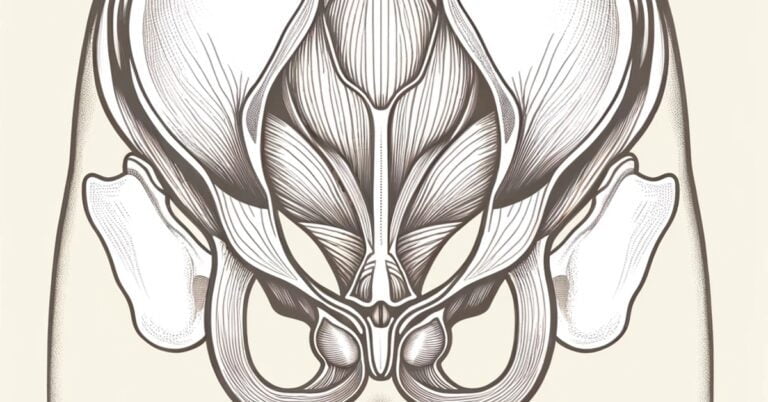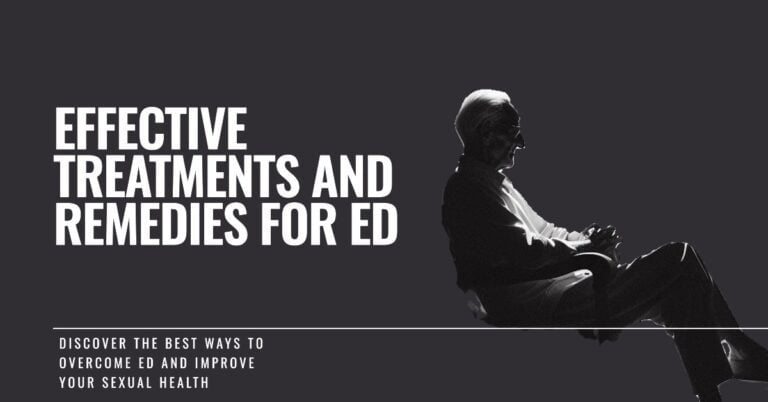7 Triggers of Erectile Dysfunction You Might Be Ignoring
Triggers of erectile dysfunction (ED) often go unnoticed, leaving you searching for solutions that seem elusive. Understanding these hidden factors can profoundly impact your intimate life and overall well-being. You may be overlooking subtle influences such as stress, dietary choices, or even an underlying medical condition that exacerbates ED. By uncovering these triggers, you can take control of your sexual health and make informed decisions to enhance your performance. Read on to explore the overlooked aspects that could help you reclaim your confidence and intimacy.
Understanding Erectile Dysfunction
Before delving into the hidden triggers of erectile dysfunction (ED), it’s important to understand what it is. ED is a condition where you consistently struggle to achieve or maintain an erection sufficient for sexual activity. This issue affects men of all ages and can be a sign of underlying health problems or psychological states. Recognizing the nature of ED can help you determine the appropriate steps towards addressing it.
Common Myths and Misconceptions
Misconceptions about erectile dysfunction abound, leading to unnecessary shame or confusion for those affected. Many people believe that ED only affects older men, but this is not true. Younger men can also experience it, often due to stress, lifestyle choices, or health issues. It’s crucial for you to separate fact from fiction to better understand and address your condition.
The Psychological vs. Physical Causes
With ED, there are often two primary categories of causes: psychological and physical. While many men attribute the condition to physical issues like diabetes or heart disease, psychological factors such as anxiety, stress, and depression can play a significant role. Understanding the balance between these causes is imperative for effective treatment.
A comprehensive understanding of your ED should encompass both psychological and physical factors. Psychological issues may stem from relationship problems, sexual performance anxiety, or past trauma, contributing to a cycle of stress and ED. On the other hand, physical causes can include chronic illnesses or hormonal imbalances. By recognizing the interplay between these elements, you can better tailor a treatment approach that addresses your unique situation.
Lifestyle Factors as Triggers
Some lifestyle factors can act as hidden triggers for your eating disorders (ED). It’s crucial to examine these elements that you may be overlooking:
- Chronic stress levels
- Lack of sleep
- Social pressures and environment
- Substance use
Knowing how these factors influence your behaviour may be the key to addressing and overcoming your eating disorder.
Diet and Nutrition
Any significant shifts in your diet can serve as a potential trigger for your eating disorders. Whether it’s a sudden restriction of calories, skipping meals, or an obsession with particular food groups, these changes can drastically impact your mental health and relationship with food.
Exercise and Physical Health
An overemphasis on physical fitness can also contribute to eating disorder triggers. When exercise becomes an obsession rather than a healthy activity, it can exacerbate unhealthy eating patterns and lead to feelings of guilt when not engaging in physical activity.
Health professionals often note that excessive exercise can be a means of controlling weight or compensating for food intake, creating a vicious cycle of disordered eating behaviours. If you find yourself pushing past physical limits or feeling compelled to exercise despite injury or fatigue, it’s important to reassess your motivations. Being mindful of how your relationship with exercise impacts your eating habits can help you develop a healthier lifestyle.
Emotional and Psychological Influences
Any emotional turmoil manifests physically, often influencing your sexual health more than you realize. Factors such as stress, anxiety, and depression can contribute significantly to the development of erectile dysfunction (ED). It’s crucial to recognize these internal triggers, as they can easily fly under the radar of your everyday life, affecting not just your performance but your overall well-being.
Stress and Anxiety
Psychological pressures can create a vicious cycle, where anxiety about performance leads to increased stress, which can further exacerbate erectile dysfunction. When you’re under constant strain, your body reacts by limiting the crucial blood flow needed for arousal, creating a barrier that can feel insurmountable. It’s important to identify these triggers and work on coping mechanisms that can alleviate the pressure you may be feeling.
The Role of Depression
Depression can severely impact your libido and sexual performance, creating an additional hurdle in addressing ED. Feeling hopeless or disinterested in life can extend to intimacy, making it difficult to connect with your partner. Recognizing these feelings as part of a larger issue can motivate you to seek help and reclaim your sexual health.
Plus, addressing depressive symptoms can help you break free from the cycle of ED and regain confidence. Speaking with a mental health professional can assist you in exploring underlying issues contributing to your feelings. Taking proactive steps towards treating depression may not only improve your emotional state but can also revitalize your sexual health, facilitating a more fulfilling, intimate life.
Relationship Dynamics
Once again, the complexities of your relationships might be silently influencing your experience with erectile dysfunction (ED). If there are underlying tensions, unresolved conflicts, or dissatisfaction in your partnership, these issues can manifest physically. Stress stemming from relationship dynamics may create a cycle of anxiety that not only affects intimacy but can also take a toll on your sexual health. Understanding how your relationships function can be pivotal to overcoming these hidden triggers of ED.
Communication Issues
The dynamics of your relationship often suffer from poor communication, which can create misunderstandings and emotional distance. When you and your partner find it difficult to express thoughts, needs, and feelings, it can lead to frustration and anxiety, further complicating your sexual experiences. Addressing communication barriers is crucial in fostering a supportive environment, which may enable healthier intimacy and reduce the symptoms of ED.
Intimacy and Connection
One of the most significant factors affecting your sexual health is the quality of intimacy and connection with your partner. If emotional closeness is lacking, it can create feelings of insecurity or unworthiness, contributing to erectile dysfunction. Engaging in deeper emotional bonds can alleviate performance anxiety and bolster your sexual confidence, making the experience more fulfilling for both you and your partner.
The ongoing journey to enhance intimacy and connection involves open communication, shared experiences, and mutual understanding of each other’s needs. By prioritizing emotional closeness, you can create a safe and supportive space where both partners feel valued and understood. This newfound connection can lead to a more satisfying sex life, ultimately addressing potential triggers of erectile dysfunction. Fostering intimacy is about building trust—something that can directly influence your overall sexual health.
Medical Conditions That Contribute
Unlike common misconceptions, certain medical conditions can significantly impact your sexual health and lead to erectile dysfunction (ED). Issues such as diabetes, cardiovascular diseases, and neurological disorders can interfere with blood flow and nerve function, ultimately affecting your ability to achieve or maintain an erection. Being aware of these conditions is crucial for recognizing the potential underlying causes of your ED.
Hormonal Imbalances
An imbalance in hormones can profoundly affect your sexual function. Low testosterone levels, often referred to as low T, are frequently linked to ED, leading to reduced libido and a decreased ability to perform sexually. It’s imperative to consult with a healthcare provider if you suspect hormonal issues are contributing to your difficulties.
Chronic Illnesses
An array of chronic illnesses can also contribute to erectile dysfunction. Conditions like hypertension and obesity not only affect your overall health but can also disrupt your sexual function.
Chronic health issues can create a vicious cycle involving mental and physical health. For instance, chronic pain or fatigue associated with illnesses can decrease your libido and hinder sexual performance. Moreover, medications used to treat these conditions frequently have side effects that may exacerbate ED. Therefore, considering your overall health and engaging in a dialogue with healthcare providers about managing both chronic ailments and erectile dysfunction is imperative for finding effective solutions.
Medications and Substances
Keep in mind that various medications and substances can significantly influence your sexual health. While they may be prescribed for legitimate medical reasons, their side effects can often go unnoticed until they start impacting your performance or drive. It’s crucial to pay attention to how these substances affect you personally, as changes in your body or mood might signal hidden triggers of erectile dysfunction (ED).
Prescription Drugs
The medications you take for conditions like hypertension, depression, or anxiety can lead to erectile dysfunction as a side effect. It’s important to discuss any concerns with your healthcare provider, as they may suggest alternatives or adjustments to your treatment plan that could alleviate these unwanted effects.
Alcohol and Recreational Substances
With the growing normalization of alcohol and recreational drugs, many overlook their potential impact on erectile function. These substances can impair your ability to achieve or maintain an erection and, when used excessively, may lead to long-term issues.
Alcohol is often seen as a social lubricant, but its effects on your body can be detrimental to your sexual health. While moderate use may not have immediate consequences, overindulgence can hinder your body’s natural response, leading to decreased libido and erectile dysfunction. Recreational substances like marijuana and cocaine can also disrupt your hormonal balance and affect your nervous system, further complicating sexual performance. Being mindful of your intake and its effects on your body is important in preserving your sexual health.
Triggers of Erectile Dysfunction: Final Words
From above, it’s clear that recognizing and addressing the hidden triggers of erectile dysfunction (ED) is crucial for your overall health and well-being. You may be overlooking factors such as stress, emotional issues, hormonal changes, and lifestyle habits that significantly impact your sexual function. By becoming more aware and taking proactive measures, you can effectively manage and potentially overcome these challenges. Recall seeking professional guidance can also provide the support you need to navigate this sensitive aspect of your life confidently.







